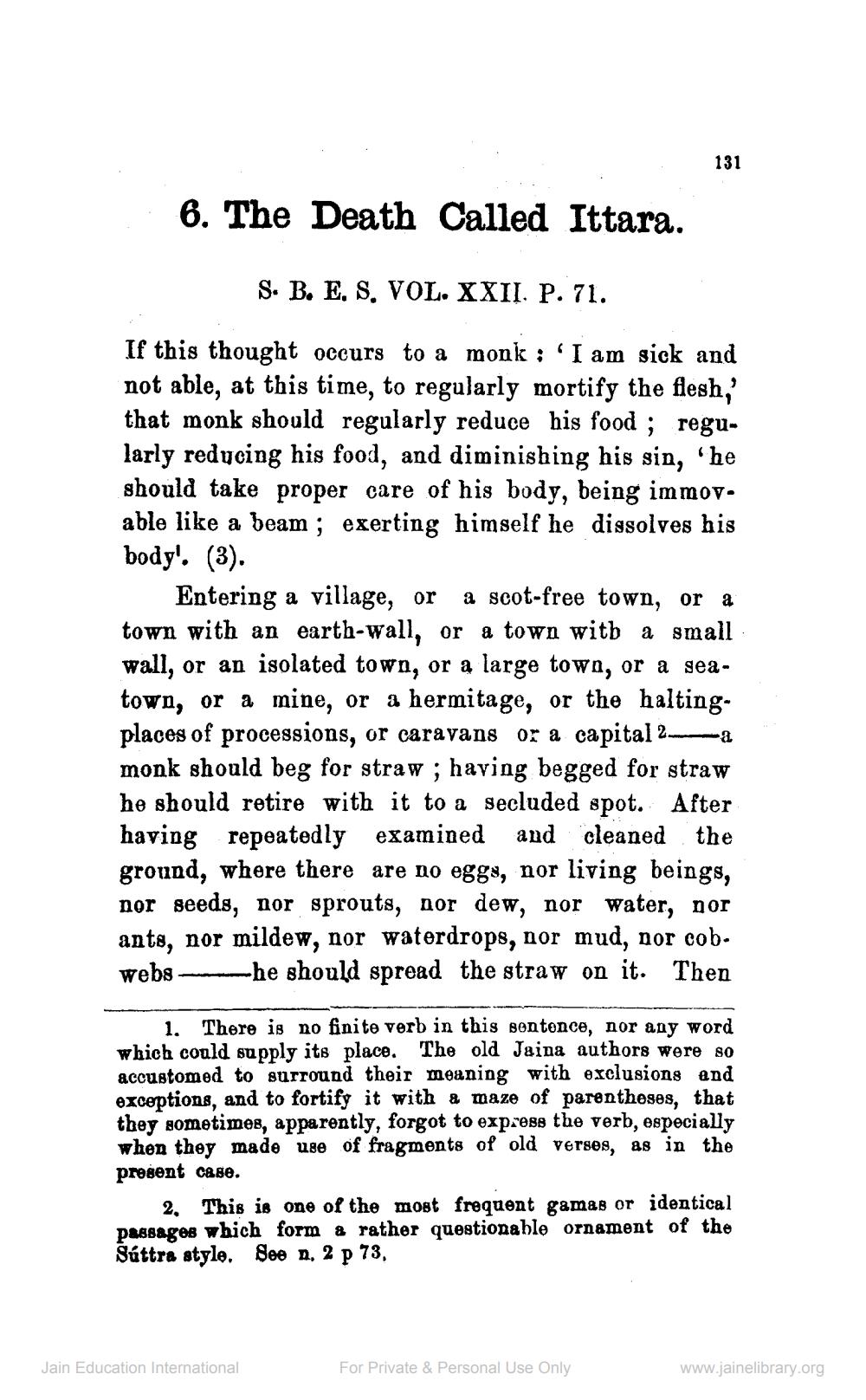________________
131
6. The Death Called Ittara.
S. B. E. S. VOL. XXII. P. 71.
If this thought occurs to a monk ; 'I am sick and not able, at this time, to regularly mortify the flesh, that monk should regularly reduce his food ; regularly reducing his food, and diminishing his sin, 'he should take proper care of his body, being immovable like a beam ; exerting himself he dissolves his body'. (3).
Entering a village, or a scot-free town, or a town with an earth-wall, or a town witb a small wall, or an isolated town, or a large town, or a seatown, or a mine, or a hermitage, or the haltingplaces of processions, or caravans or a capital 2monk should beg for straw ; having begged for straw he should retire with it to a secluded spot. After having repeatedly examined and cleaned the ground, where there are no eggs, nor living beings, nor seeds, nor sprouts, nor dew, nor water, nor ants, nor mildew, nor waterdrops, nor mud, nor cob. webs he should spread the straw on it. Then
1. There is no finite verb in this sentence, nor any word which could supply its place. The old Jaina authors were so accustomed to surround their meaning with exclusions and exceptions, and to fortify it with a maze of parentheses, that they sometimes, apparently, forgot to express the verb, especially when they made use of fragments of old verses, as in the present case.
2. This is one of the most frequent games or identical passages which form & rather questionable ornament of the Súttra style. See n. 2 p 73,
Jain Education International
For Private & Personal Use Only
www.jainelibrary.org




